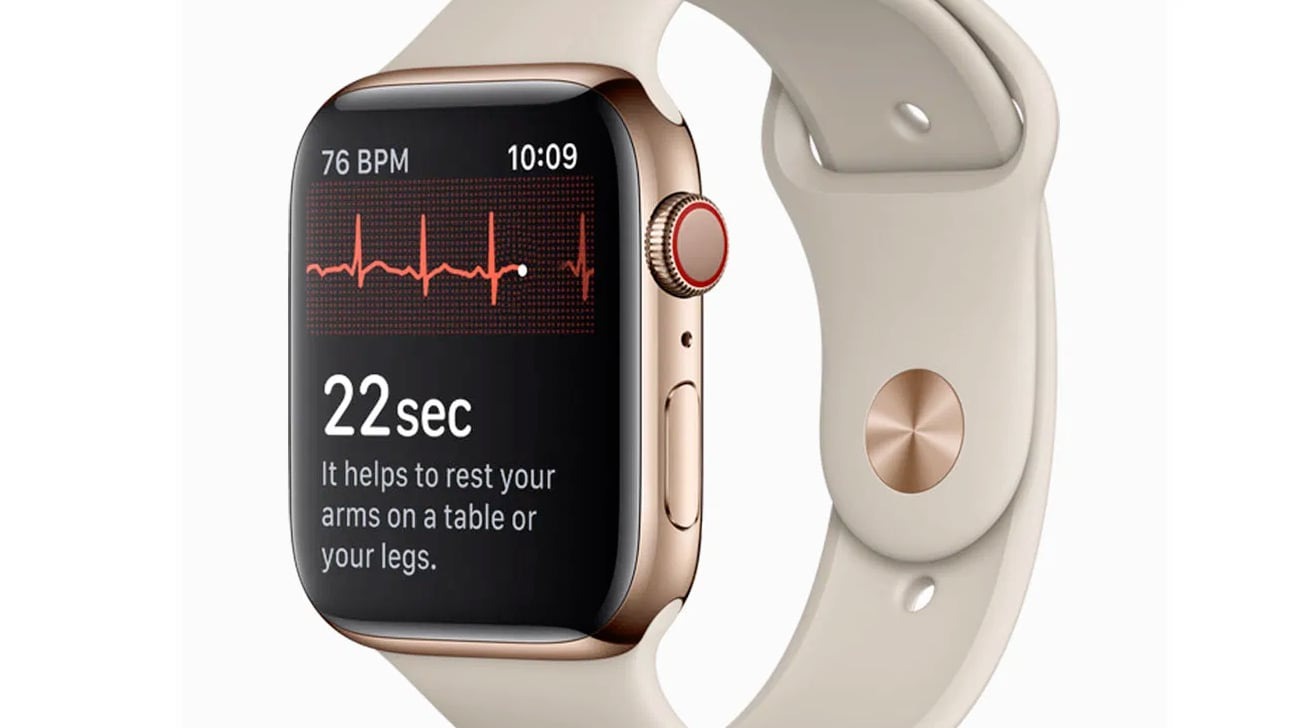The ECG function of the Apple Watch has been credited with uncovering a heart condition in an 80-year-old woman in Germany, one that was seemingly missed by a hospital's own ECG during a diagnosis.
The Apple Watch has repeatedly appeared in stories where it warned wearers of possible heart problems, and has been praised for being an early warning system for serious cardiovascular issues. In one recently reported case, the Apple wearable actually provided better evidence of a condition than a hospital's own equipment.
In a report published in the European Heart Journal on Wednesday and spotted by 9to5Mac, an 80-year-old woman attended the University Medical Center Mainz of Johannes Gutenberg University, Germany, with what was described as "typical angina symptoms." The patient also advised of two praesyncopy episodes, a situation where a person almost loses consciousness due to reduced flow of oxygenated blood to the brain.
Based on the presented details, and the female engineer's previous diagnosis of arterial hypertension, paroxysmal atrial fibrillation, and having had a pulmonary embolism two years prior, doctors performed an initial 12-channel ECG. The test didn't see any evidence for ischaemia, which is a restriction in blood vessels that can restrict the blood supply.
Despite the hospital's own equipment not showing ischaemia, doctors were then convinced there was a related issue by the patient complaining about earlier ectopic beat episodes, which she recorded by using the ECG function of her Apple Watch. The recordings also included tracings with marked ST-segment depression, evidence that led to the medical team omitting further diagnostic measures in favor of treatment.
In effect, the Apple Watch ECG recordings showed evidence of an issue that didn't appear in the hospital's specialized equipment, and successfully convinced doctors to treat the patient.
The woman was transferred to a catheterization laboratory for a "left main stem stenosis and a left anterior descending/diagonal bifurcation lesion," and treatment with coronary artery stenting. The patient left the hospital the next day.
It is suggested by the report that the Apple Watch "may be used not only to detect atrial fibrillation or atrioventricular-conduction disturbances but also to detect myocardial ischaemia."
Current speculation for the Apple Watch Series 6 suggests the next generation of Apple Watch may include a feature for blood oxygen detection, as well as an upgraded ECG capable of working at higher heart rate ranges than the version introduced in the Apple Watch Series 4.
 Malcolm Owen
Malcolm Owen
![[via European Heart Journal]](https://photos5.appleinsider.com/gallery/35626-65545-ehaa290f1-xl.jpg)




-xl-m.jpg)


-m.jpg)






 Mike Wuerthele
Mike Wuerthele

 William Gallagher
William Gallagher
 Thomas Sibilly
Thomas Sibilly
 Wesley Hilliard
Wesley Hilliard
 Marko Zivkovic
Marko Zivkovic










24 Comments
Apple leading the way-again.
Isn’t that like saying that the iPhone gps caught a car speeding while the more advanced police radar couldn’t do that when the car later on was parked…?
Caution! Apple watch and it’s measurements/monitoring is often inaccurate. This should not substitute for a Doctor. In fact, it’s almost criminal how horrible these devices are. Many things to account for, that isn’t taken into consideration for health, which may hurt certain individuals with underlying health issues or other circumstances. Apple watch is more of a toy.